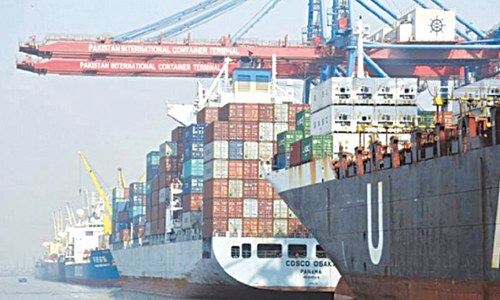ISLAMABAD: The European Union has announced renewed support for those most in need in Iran and Pakistan with 22 million euros in humanitarian aid.
The package, announced from the EU headquarters in Brussels on Monday, will assist those hit by man-made crises, Covid-19 pandemic and climate-induced and other natural disasters in the region.
Of the 22 million euros, 7m euros will go to humanitarian organisations in Pakistan, focusing on the most vulnerable local populations, Afghans, as well as host communities. Assistance will comprise Afghans and Pakistanis, affected by conflict, displacement, Covid-19 and natural disasters, including malnutrition.
22m euros package will assist those affected by Covid-19, climate-induced and other natural disasters
Pakistan is one of the world’s most disaster-prone countries and frequently experiences multiple disasters such as floods, drought, heatwaves and earthquakes. Both floods and drought have repeatedly affected the provinces of Sindh and Balochistan.
High levels of malnutrition, coupled with limited access to water, sanitation and medical services, have compromised the healthcare capacities of the most vulnerable communities. The current coronavirus outbreak has added to existing humanitarian needs.
In 2021, the European Union has allocated 7 million euros, in part to assist people affected by conflict, including Pakistani internally displaced and returnees, Afghan refugees, as well as those affected by natural hazards.
Earlier in 2020, close to 40 million euros was allocated that assisted people affected by conflict, including internally displaced and returnee Pakistanis, Afghan refugees, as well as those affected by natural disasters. Almost 60 per cent of the total funding has been dedicated to addressing the health emergency posed by the ongoing coronavirus pandemic which has put a serious strain on the country’s health systems.
The grant of 15 million euros will focus on supporting humanitarian organisations working in Iran to assist the most vulnerable Iranians and Afghans in the country. Part of the funding will support the country’s battle against the severe coronavirus pandemic, including the provision of urgent medical equipment.
The EU humanitarian funding also supports Iran’s commendable efforts in assisting Afghans on its territory and host communities, on education, health, protection and livelihood.
EU Commissioner for Crisis Management Janez Lenarcic said: “Iran and Pakistan are both highly vulnerable to recurrent natural hazards, with both countries’ situations aggravated by the severe coronavirus pandemic. Iran and Pakistan are also the principal host countries of Afghan refugees worldwide. The EU is boosting support to humanitarian organisations in both countries at this critical time.”
In Pakistan, while the health situation related to Covid-19 has not reached emergency levels and has recently significantly improved, the pandemic has seriously compounded the country’s economic challenges. This has severely aggravated challenges of the most vulnerable tranches of the population, including Afghans and especially non-documented ones, dependent on daily labour.
Pakistan hosts estimated 3 million Afghans. Loss of livelihood has pushed many to resort to negative coping mechanisms, increasing protection concerns. Particularly worrying is the increase in malnutrition and food insecurity.
The EU humanitarian funding in Pakistan will focus on supporting those affected by conflict, both Pakistanis and Afghans as well as on strengthening the resilience and the capacity of vulnerable communities to better respond to epidemics and natural hazards such as earthquakes, recurrent floods and drought.
Published in Dawn, July 13th, 2021














































